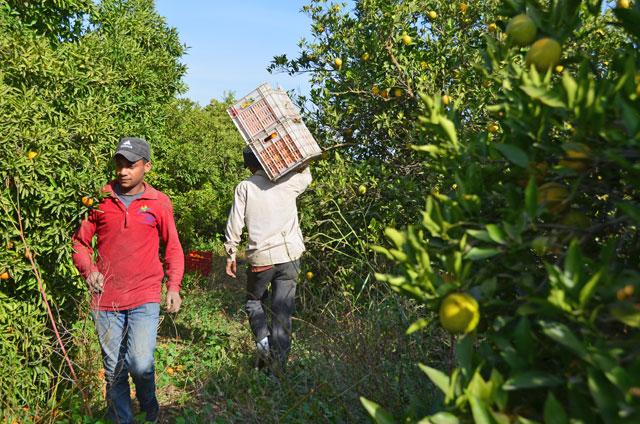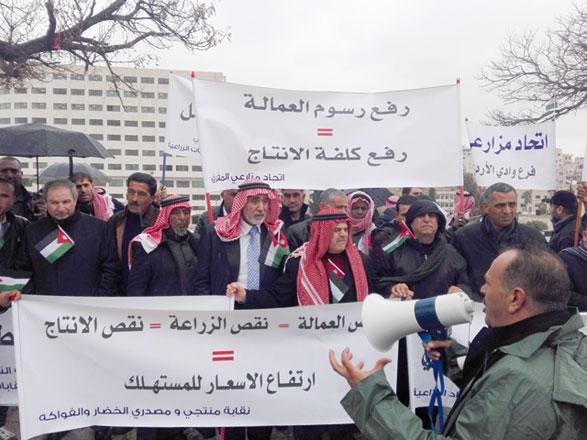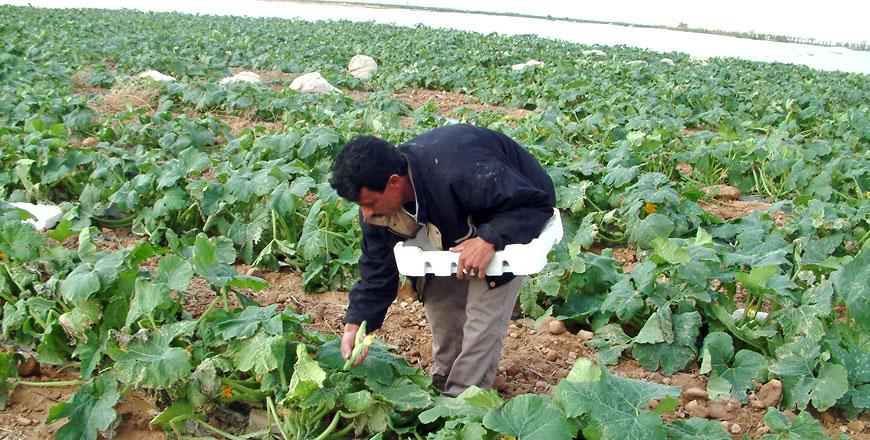You are here
Unifying guest worker fees could be harmful for agriculture sector, labourers, activists warn
By Laila Azzeh - Jan 25,2017 - Last updated at Jan 25,2017

The Jordan Valley Farmers Union has warned against increasing the work permit fees for agricultural guest labourers from JD120 to JD500 (Photo by Muath Freij)
AMMAN — The government is studying the possibility of unifying guest workers’ permit fees at JD500 in all sectors, a move that was met with dismay by labour rights activists.
While the Labour Ministry says the decision, which seeks to streamline the market, is still being deliberated by lawmakers, the chambers of industry and trade and the Interior Ministry, activists said the planned move is “arbitrary” and “destructive”, especially for the agriculture sector.
Work permits cost employers anything from JD180 to JD700, depending on the sector.
“The decision to unify the work permits or not will probably be made next week,” Labour Ministry Spokesperson Mohammad Khatib told The Jordan Times on Wednesday.
For Adnan Khaddam, head of the Jordan Valley Farmers Union, increasing the work permit fees for agricultural guest labourers from JD120 to JD500 is considered “destructive”.
“Despite all the justifications given for such a decision, the government and Parliament seem to be working against the sector, which has already been hit hard by the closure of several markets in the face of Jordanian agricultural produce,” he told The Jordan Times.
Khaddam noted that the issue of guest workers with agricultural permits who move illegally to other sectors should not be resolved at the expense of farmers.
“Instead of looking at the sector as a backbone for the economy and taking measures to protect it, authorities are neglecting farmers,” the union president charged, suggesting increasing penalties on employers and labourers found in violation of the law.
Ahmad Awad, director of the Phenix Centre for Economic and Informatics Studies, agreed, saying that imposing JD500 in work permit fees encourages employers and workers to avoid paying for them.
“The fine on guest workers with no permits is JD1.5 on each day of work, which is equal or less than the legal documents fees. This means that many employers and labourers will prefer to pay the fines instead of legalising their status,” said Awad.
On the other hand, he said that industry and agriculture are the main sectors in all world countries because of their sustainability and ability to hire more manpower than services fields.
“The government should look for ways to facilitate investing in these two sectors rather than imposing more restrictions that would result in investors heading to Egypt, the UAE and Saudi Arabia,” he noted.
While the law obligates employers to pay for guest labourers’ work permit fees, the majority of workers pay for them themselves, according to Tamkeen Director Linda Kalash.
“This means that the new charges will only burden the migrant workers — of whom 80 per cent pay for their permits and, thus, more labourers will be encouraged to work illegally,” she told The Jordan Times, calling for engaging employers in any decision to be taken in this regard.
According to official figures, there are more than half-a-million illegal workers in Jordan, while labour rights activists estimate the number to exceed 700,000.
Related Articles
AMMAN — Representatives of the agriculture sector on Tuesday held a sit-in in front of Parliament in Abdali to protest a new government deci
AMMAN — A new government decision unifying guest workers’ permit fees has created a sense of disappointment among different segments of the
AMMAN — The Ministry of Agriculture on Sunday announced plans for allowing the recruitment of new foreign workers in the agricultural sector

















